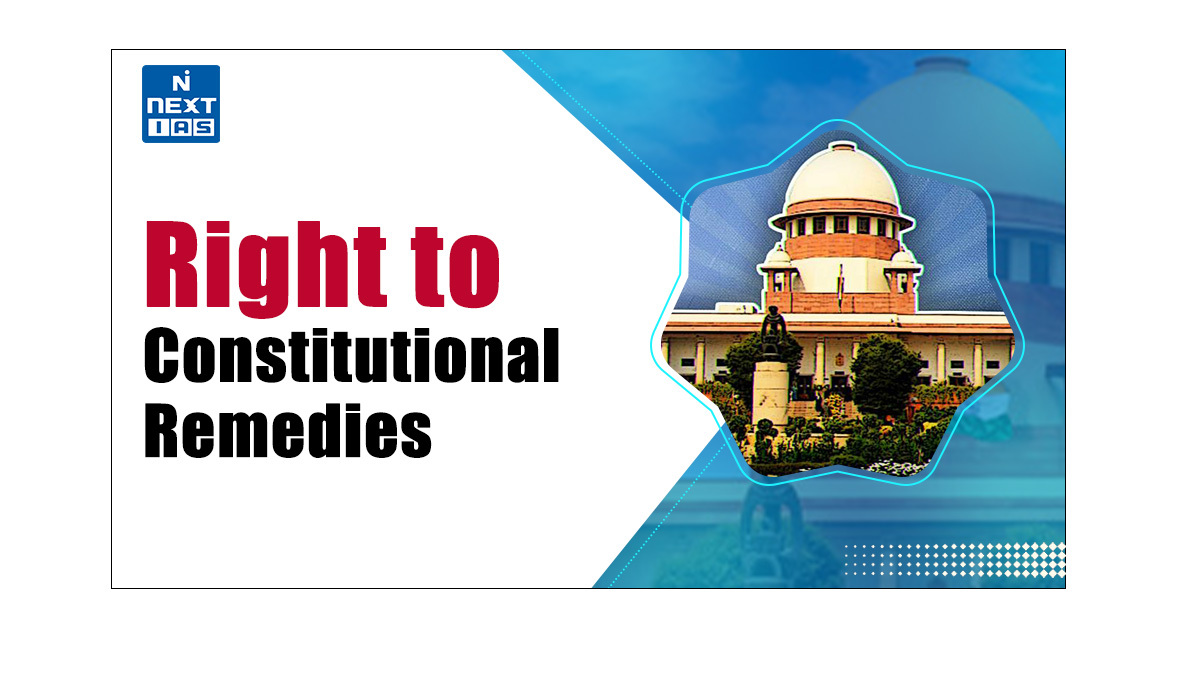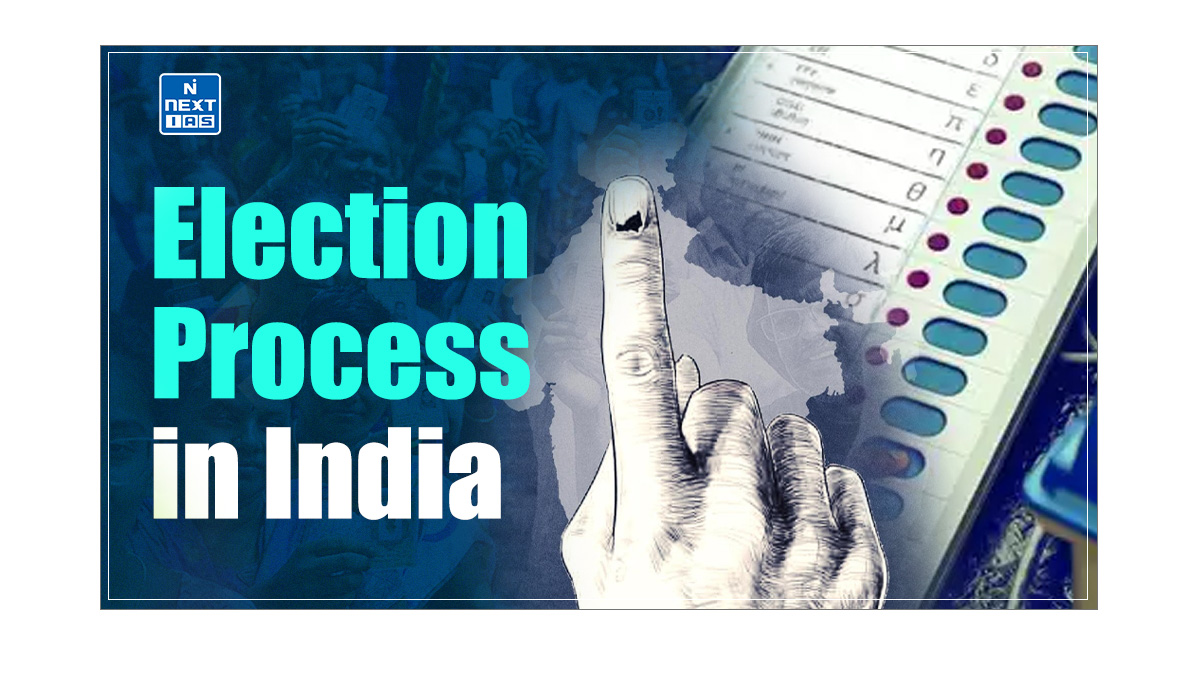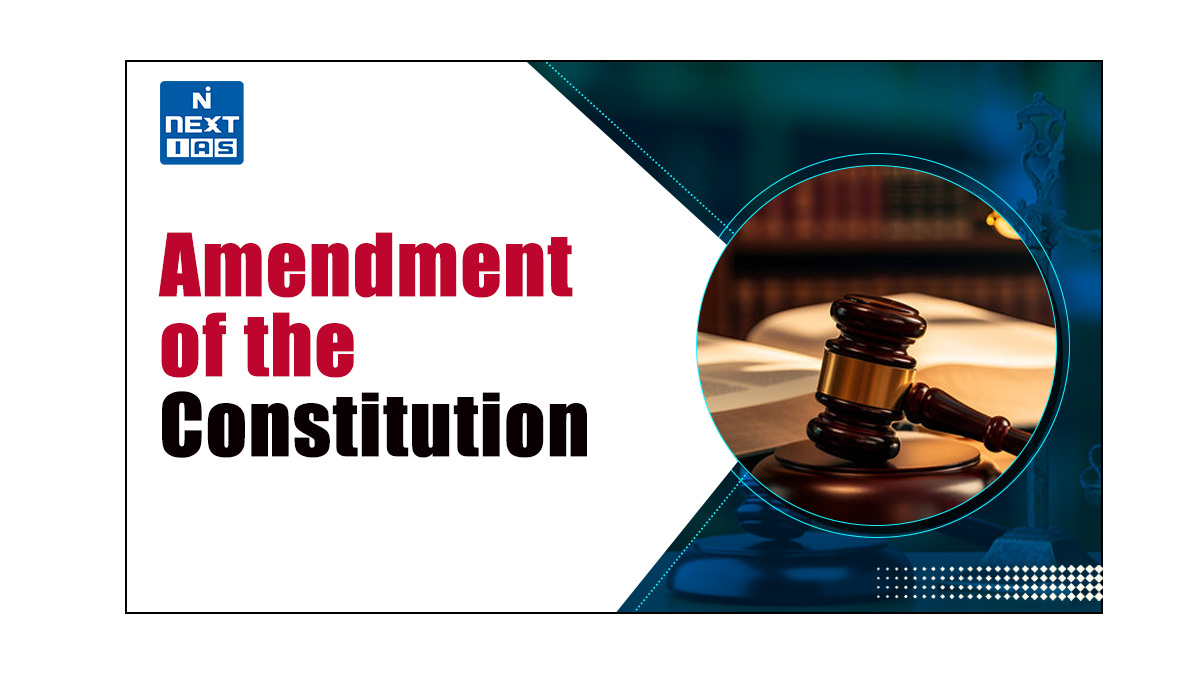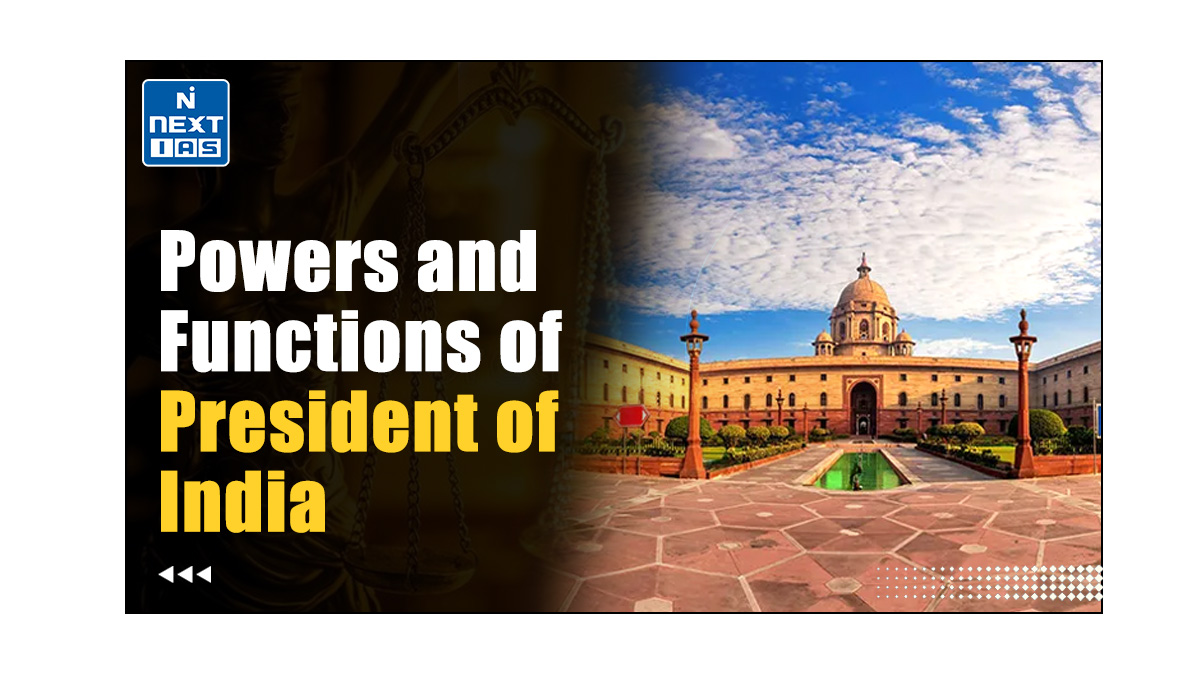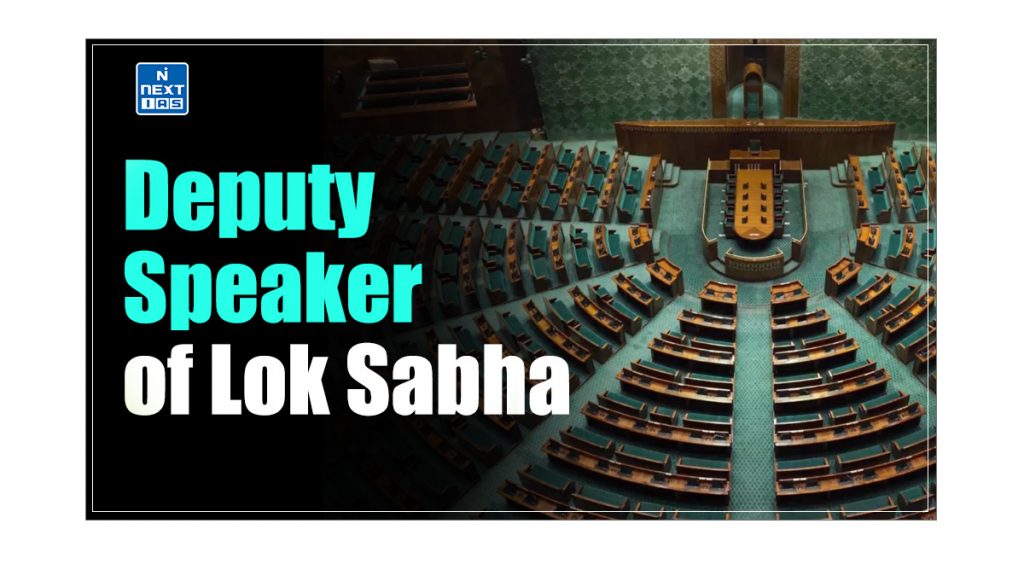
As the Second-in-Command in the House, the Deputy Speaker of Lok Sabha holds a pivotal position in the Indian parliamentary system. By upholding parliamentary rules and conventions, the Deputy Speaker plays a crucial role in the smooth functioning of the legislative wing of the government. This article of NEXT IAS aims to study in detail the Deputy Speaker of Lok Sabha, including its election procedure, tenure, role, powers, functions, significance, and other related aspects.
About Deputy Speaker of Lok Sabha
- The Deputy Speaker serves as the Second-in-Command Presiding Officer of the Lower House of Parliament of India – the Lok Sabha.
- In the absence of the Speaker, the Deputy Speaker assumes the role of the Presiding Officer of Lok Sabha and becomes responsible for maintaining order and decorum in the house, conducting its business, and ensuring that the legislative process is carried out smoothly.
| About Presiding Officers of Parliament – The Presiding Officers of Parliament refer to the officials who oversee and regulate the proceedings of the Houses of Parliament (Lok Sabha and Rajya Sabha in the case of India). – They are responsible for upholding parliamentary rules, maintaining order, managing debates, and conducting the legislative process as per the established procedures within their respective houses of the Parliament. – Overall, their role is to ensure that the legislative body functions smoothly and efficiently. |
Read our detailed article on Presiding Officers of Indian Parliament.
Election of Deputy Speaker of Lok Sabha
- The Deputy Speaker of Lok Sabha is elected by the Lok Sabha itself from amongst its members.
- The Deputy Speaker is elected only after the election of the Speaker has taken place.
- The date of election of the Deputy Speaker is fixed by the Speaker of Lok Sabha.
| Note: Usually, the Speaker is chosen from the ruling party or ruling alliance, while the Deputy Speaker is selected from the opposition party or opposition alliance. However, there have been exceptions to this convention. |
Oath and Affirmation of Deputy Speaker of Lok Sabha
- The Deputy Speaker of Lok Sabha, while assuming his/her office, does not make and subscribe to any separate oath or affirmation.
- Their oath as a Member of Parliament suffices for his/her role as Deputy Speaker of Lok Sabha.
Tenure of Deputy Speaker of Lok Sabha
- The Deputy Speaker remains in office during the life of the Lok Sabha.
- However, the Deputy Speaker has to vacate his/her office earlier in any of the following three cases:
- If he/she ceases to be a member of the Lok Sabha,
- If he/she resigns by writing to the Speaker,
- If he/she is removed by a resolution passed by a majority of all the then members of the Lok Sabha (i.e. Effective Majority).
| Note: Whenever the Office of the Deputy Speaker falls vacant, the Lok Sabha elects another member to fill the vacancy. |
Removal of Deputy Speaker of Lok Sabha
- The Deputy Speaker of Lok Sabha can be removed by a resolution passed by the Lok Sabha by an Effective Majority (i.e. a majority of the total membership of the House excluding the vacant seats).
- A motion of removal of the Speaker of Lok Sabha can be moved only after giving 14 days’ advance notice to the Speaker.
- When a resolution for removal of the Deputy Speaker is under consideration, he/she cannot preside at the sitting of the house, though he may be present.
Roles and Functions of Deputy Speaker of Lok Sabha
- The Deputy Speaker performs the duties of the Speaker when the office of the Speaker is vacant.
- The Deputy Speaker acts as the Speaker when the latter is absent from the sitting of the House.
- The Deputy Speaker presides over joint sittings of both Houses of Parliament in case the Speaker is absent from such a sitting.
Powers and Privileges of Deputy Speaker of Lok Sabha
- While performing the duties of or acting as the Speaker of Lok Sabha (i.e. while presiding over the sitting of Lok Sabha or a Joint Sitting of both the Houses), he/she assumes all the powers of the Speaker of Lok Sabha.
- Thus, in such times, the Deputy Speaker cannot vote in the first instance, rather he/she can only exercise a Casting Vote in case of a tie.
- When the Speaker presides over the House, the Deputy Speaker is like any other Ordinary Member of the House.
- Thus, in such times, the Deputy Speaker can speak in the House, participate in its proceedings, and vote in the first instance on any question before the House.
- He/she has one special privilege -Whenever the Deputy Speaker of Lok Sabha is appointed as a member of a Parliamentary Committee, he/she automatically becomes its chairman.
| Note: The Deputy Speaker is not subordinate to the Speaker, but is directly accountable to the Lok Sabha. |
Salary and Allowances of Deputy Speaker of the Lok Sabha
- The Deputy Speaker of Lok Sabha is entitled to a regular salary and allowance fixed by the Parliament.
- The salary and allowances of the Deputy Speaker of Lok Sabha are charged on the Consolidated Fund of India and hence are not subject to the annual vote of Parliament.
Significance of Deputy Speaker of Lok Sabha
The Deputy Speaker of Lok Sabha holds significant importance in the Indian parliamentary system. The major significance of the Deputy Speaker of Lok Sabha are as follows:
- Orderly Functioning of House – The Deputy Speaker, while presiding over the House, ensures orderly conduct of proceedings, upholding the rules of the House, and maintaining decorum.
- Representation and Inclusivity – Conventionally, the office of the Deputy Speaker goes to the Opposition Party/Alliance. This provides representation to the opposition and promotes a balance of power and inclusivity within the parliamentary system.
- Administrative Responsibilities – The Deputy Speaker often shares administrative responsibilities with the Speaker, contributing to the effective management of parliamentary affairs.
- Contributing to Committees – The Deputy Speaker may be involved in various parliamentary committees, which are crucial for detailed scrutiny of legislation and issues. Their participation enhances the quality of deliberations and decision-making processes within these committees.
Conclusion
The Deputy Speaker of Lok Sabha is an indispensable part of India’s parliamentary democracy. Through their role in presiding over sessions, maintaining order, and ensuring the continuity of legislative processes, the Deputy Speaker contributes significantly to the functioning of the Lok Sabha. Overall, this position is significant for upholding the integrity and efficiency of the legislative framework.
Evolution of Offices of Speaker and Deputy Speaker of Lok Sabha
The offices of Speaker and Deputy Speaker of Lok Sabha trace back their origin to the British era. Major developments regarding the evolution of these two offices in India can be seen as follows:
- The offices of Speaker and Deputy Speaker originated in India in 1921 under the provisions of the Government of India Act of 1919 (Montague-Chelmsford Reforms).
- At that time, the Speaker and the Deputy Speaker were called the President and Deputy President respectively.
- Before 1921, the Governor-General of India used to preside over the meetings of the Central Legislative Council.
- The Government of India Act of 1935 changed the nomenclatures of the offices of the President and the Deputy President of the Central Legislative Assembly to the Speaker and the Deputy Speaker respectively.
- However, the old nomenclatures of President and Deputy President continued till 1947 as the federal part of the 1935 Act was not implemented.
| – In 1921, Frederick Whyte and Sachidanand Sinha were appointed by the Governor-General of India as the first Speaker (then called President) and the first Deputy Speaker (then called Deputy President) respectively of the Central Legislative Assembly. – In 1925, Vithalbhai J. Patel became the first Indian and the first elected Speaker of the Central Legislative Assembly. – G.V. Mavalankar and Ananthasayanam Ayyangar had the distinction of being the first Speaker and the first Deputy Speaker (respectively) of the Lok Sabha. a. G.V. Mavalankar also held the post of Speaker in the Constituent Assembly (Legislative) as well as the Provisional Parliament. b. Mavalankar held the post of Speaker of Lok Sabha continuously for one decade from 1946 to 1956. |

